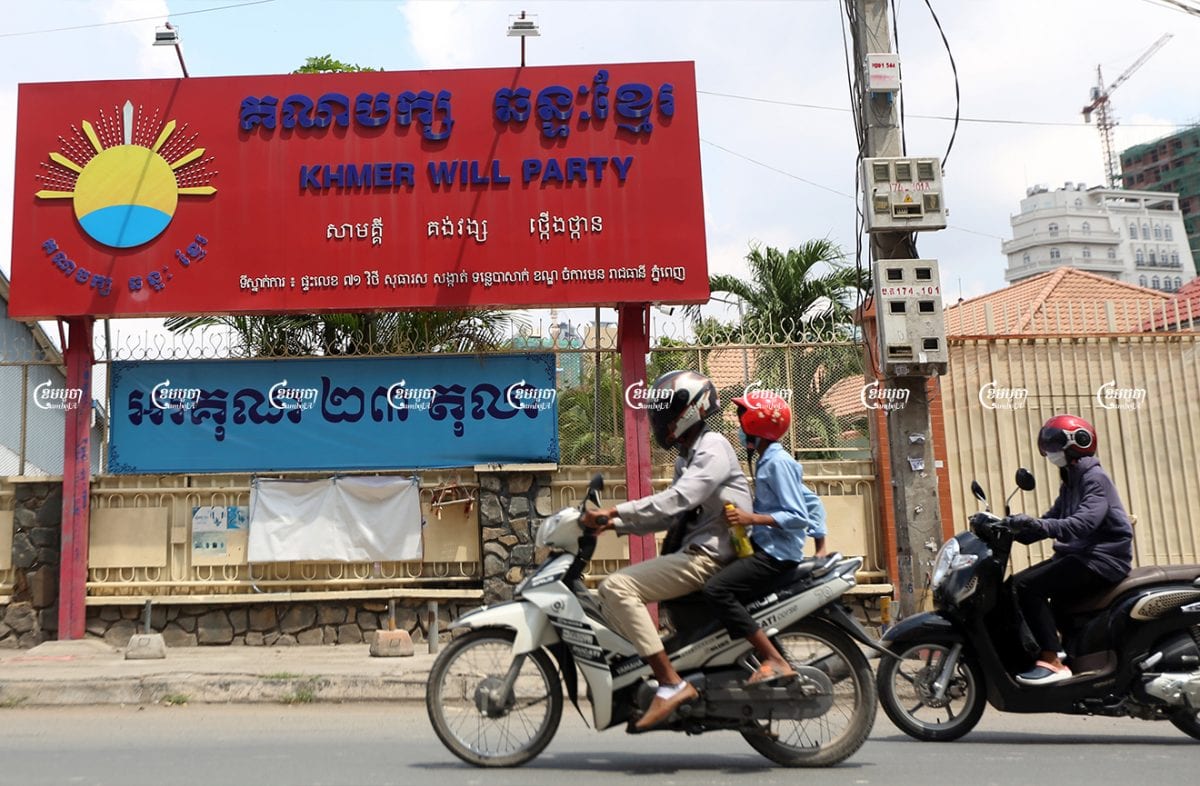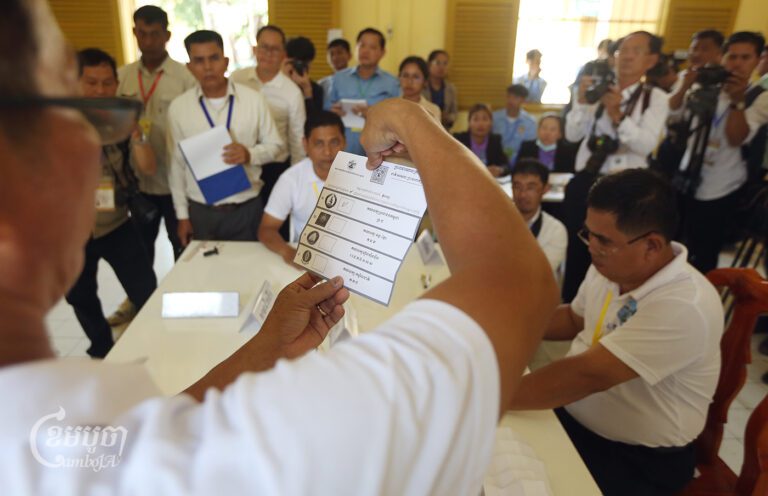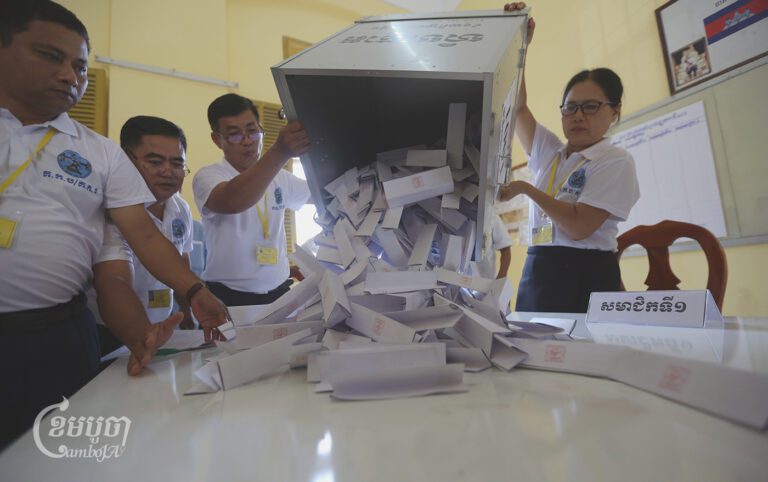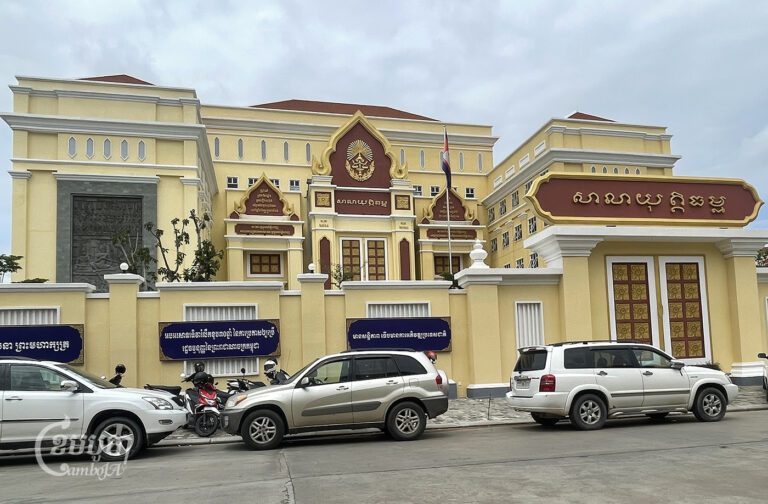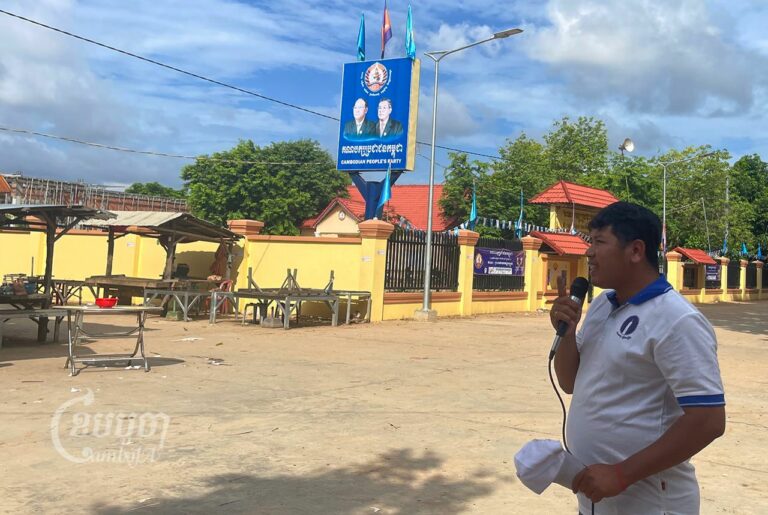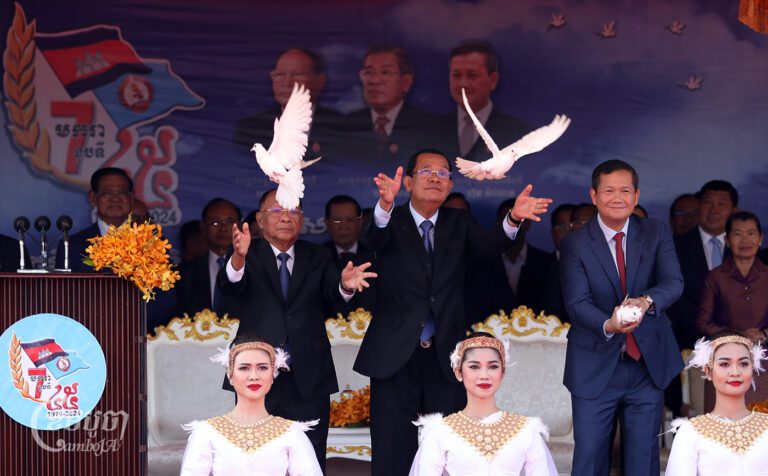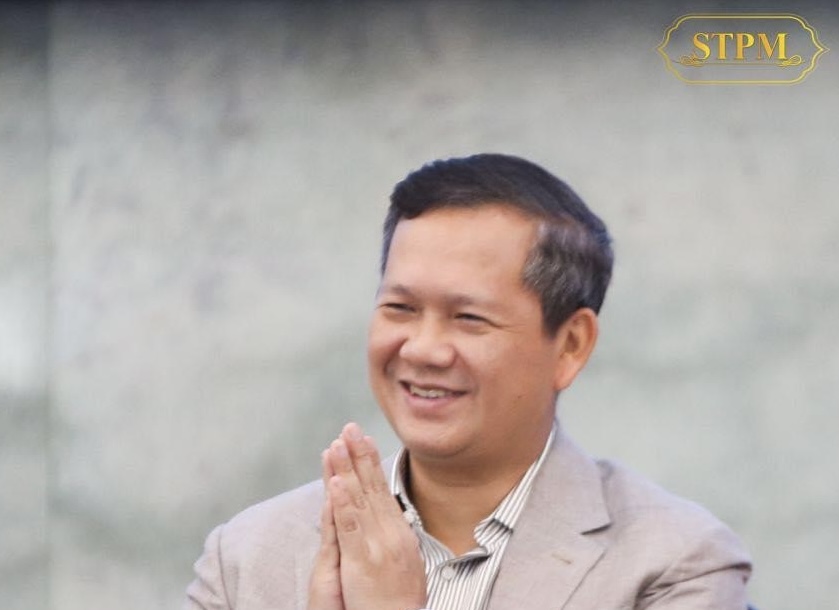Although almost 50 minor political parties are preparing to compete in the upcoming commune and national elections, political observers say that without the time or resources to pose a credible challenge to the 70-year-old Cambodian People’s Party (CPP) following the dissolution of the main opposition party, the competition will be little more than a game. Cambodia is set to hold its commune elections on June 5, 2022, and the general elections in July 2023.
Ou Chanrath, the founder of the newly formed Cambodia Reform Party (CRP) and a former Cambodia National Rescue Party (CNRP) lawmaker, said that party officials had been repeatedly questioned by authorities while collecting fingerprints to submit to the Ministry of Interior so that the party can compete in the upcoming commune elections.
“We also encountered some problems when collecting fingerprints, because the authorities understood that we were doing political activities,” he said.
Chanrath said that COVID-19 presents a major obstacle for political parties to compete with the CPP, as the ruling party already has the advantage of sufficient resources and a strong structure.
“This makes us unable to fully structure our party during the COVID-19,” he said. “We have thought we could use social media to attract support if COVID-19 continues, but it is not fruitful like going directly to the grassroots. When we cannot go to the grassroots, it is problematic to provide enough information about the party to people.”
He said that if the pandemic continues, a possible postponement of the elections could give smaller parties more time to prepare for the poll.
The CPP’s former rival, the now-banned CNRP, won 55 seats in the 125-seat National Assembly in the 2013 national elections. In the commune elections of 2017, the party won more than 5,000 commune councilors compared with the more than 6,000 won by the ruling party. The opposition party’s mounting success was followed swiftly by its dissolution later in the year after opposition leader Kem Sokha was arrested on treason charges widely believed to have been politically motivated. Following the party’s dissolution, 118 opposition officials were banned from politics for five years. Of that number, 24 have since had their political rights restored upon request.
The Khmer Will Party is another party formed by a former CNRP official in 2017 in the wake of the opposition party’s Supreme Court-ordered dissolution. The party ran in the 2018 national election, but did not win a seat.
Party president Kong Monika said that although the party is starting to prepare candidates for the upcoming commune election, the spread of COVID-19 has made it difficult to organize the party’s structure at the grassroots level.
“Our preparation is slower than planned,” he said. “Some local authorities have always used COVID-19 as an excuse not to allow gatherings, even though we have taken safety measures. This is an obstacle for the parties to disseminate their policies. We hope that the authorities will make it easier for political parties to gather where there is a fair chance of competition.”
Under the law, political parties are not allowed to take part in political campaigns until closer to the election.

Mam Sonando, president of the Beehive Social Democratic Party, said that he is still not sure if his party will compete in the commune elections, saying the party was facing a financial crisis due to COVID-19.
“If we cannot meet each other directly, how can we strengthen our members?” he said. “It is very challenging to mobilize members. We cannot gather to explain to them about our political strategies and policies.”
In addition to financial difficulties, Sonando said, the party may also struggle to find willing candidates to run in the elections.
“If anyone volunteers to be a candidate, they are welcome,” he said. “I cannot select them as before because I have nothing [in terms of resources] now. So, let them volunteer, and if no one joins us, let’s finish.”
Chhim Kan, deputy director-general of the interior ministry’s department of associations and political party affairs, told CamboJA that so far a total of 48 political parties had registered at the ministry. He said that any parties that want to compete in the upcoming elections need to first register with the National Election Committee (NEC). According to NEC spokesman Hang Puthea, political parties need to register with the committee within 90 days of the election. The parties have 14 days in which to conduct a campaign ahead of the commune elections, and 21 days for the national election the following year.
Cambodian People’s Party spokesman Sok Eysan said that the CPP welcomes the participation of all political parties in the upcoming elections, though he said that the minor parties were not competitors to the ruling party.
“They always say that the CPP has more potential, yes, that is right, because some parties have just been formed, how can it be compared to the CPP, which is 70 years old, and this is true,” he said.
He said even without the current COVID-19 pandemic, the CPP has maintained an advantage over other parties.
“We have a strong foundation, we have enough resources, and we have built achievements for decades, but we do not discriminate or prevent anything from participating — they can form a party to compete any time,” he said.
Korn Savang, coordinator of the monitoring unit at election monitoring NGO COMFREL, said most of the newly formed parties are led by former CNRP officials who will likely rely on former supporters of the dissolved party.
“So, whether supporters believe in the new parties and whether they trust those leaders’ reputation is not easy,” he said. “It is difficult for those parties to mobilize people to support them, and the time is not favorable for those parties as well.”
Savang said so far, most minor parties have not done any significant activities to win the trust of the public or presented credible policies.
“We do not see any political parties demanding the reform of political party law and election law, which was amended after 2017, without guaranteeing the will of the people,” he said.
Political analyst Em Sovannara said that the current situation mirrors that of 2018, when many small political parties were quickly established, creating a veneer of multiparty elections after the CNRP was dissolved.
“Small political parties are finding it difficult to deliver their message to people at the grassroots level during COVID-19 while it is not time for political propaganda yet,” he said.
However, he said even if there were no COVID-19, those parties would still have difficulty connecting with and mobilizing their supporters.
“Their political force is too weak, as most of the media is controlled by the CPP,” he said. “They cannot mobilize supporters because they do not have enough political credibility. Those parties do not join any social activities or provide credible political affairs that are valued by the people, and their participation in the election is just to [accompany the CPP].”
San Khin, a former CNRP commune chief in Siem Reap province, said that he had decided to join with a newly formed party because he does not think the CNRP will return. He declined to name the party in question.
“I decided to join a new party to promote democracy in Cambodia, and I believe that the new party will be able to compete with CPP if there are free and fair elections,” he said. (Additional Reporting by Sam Sopich)


